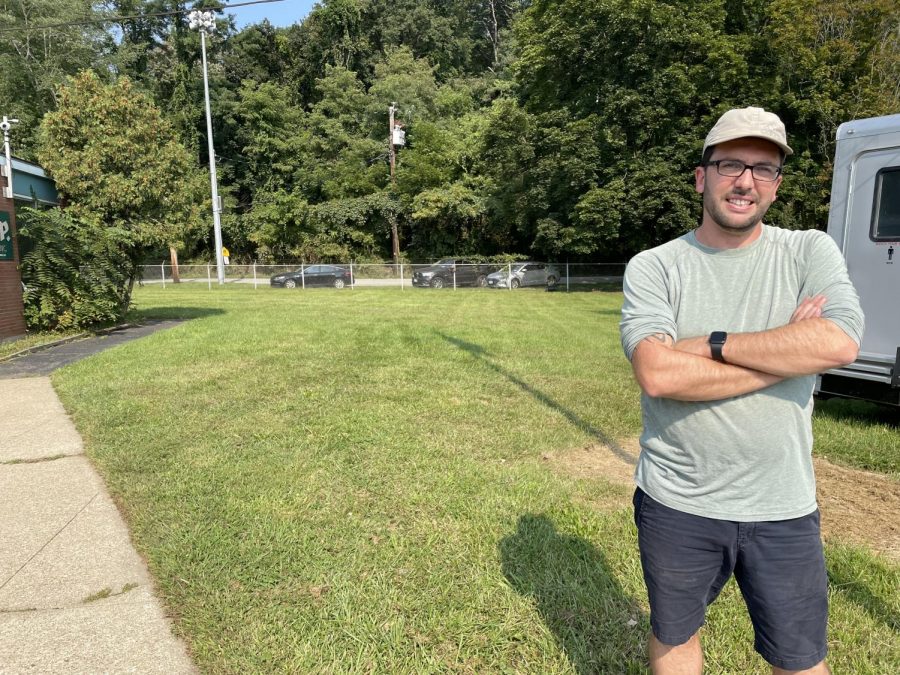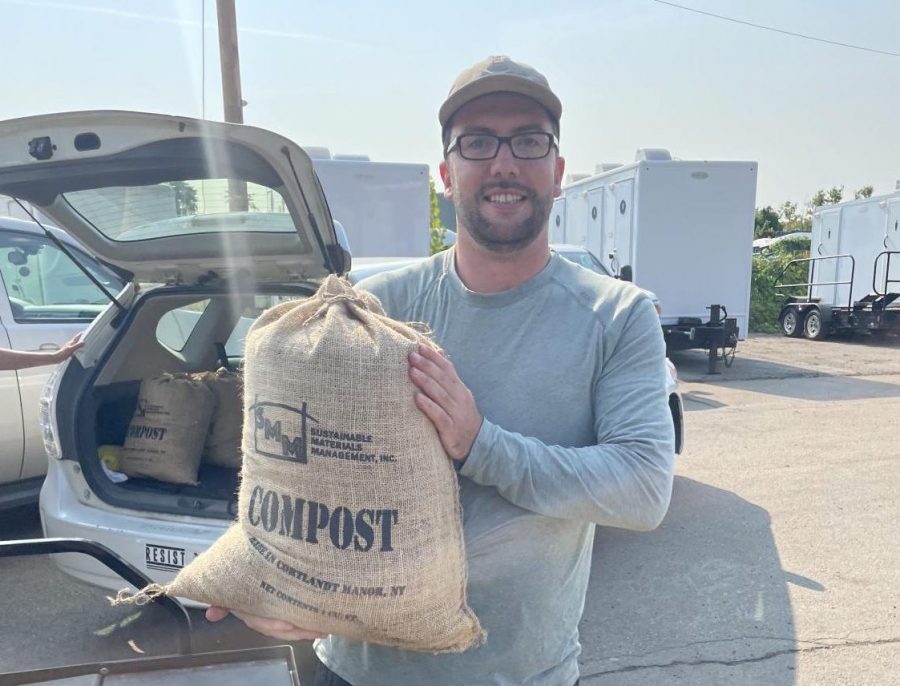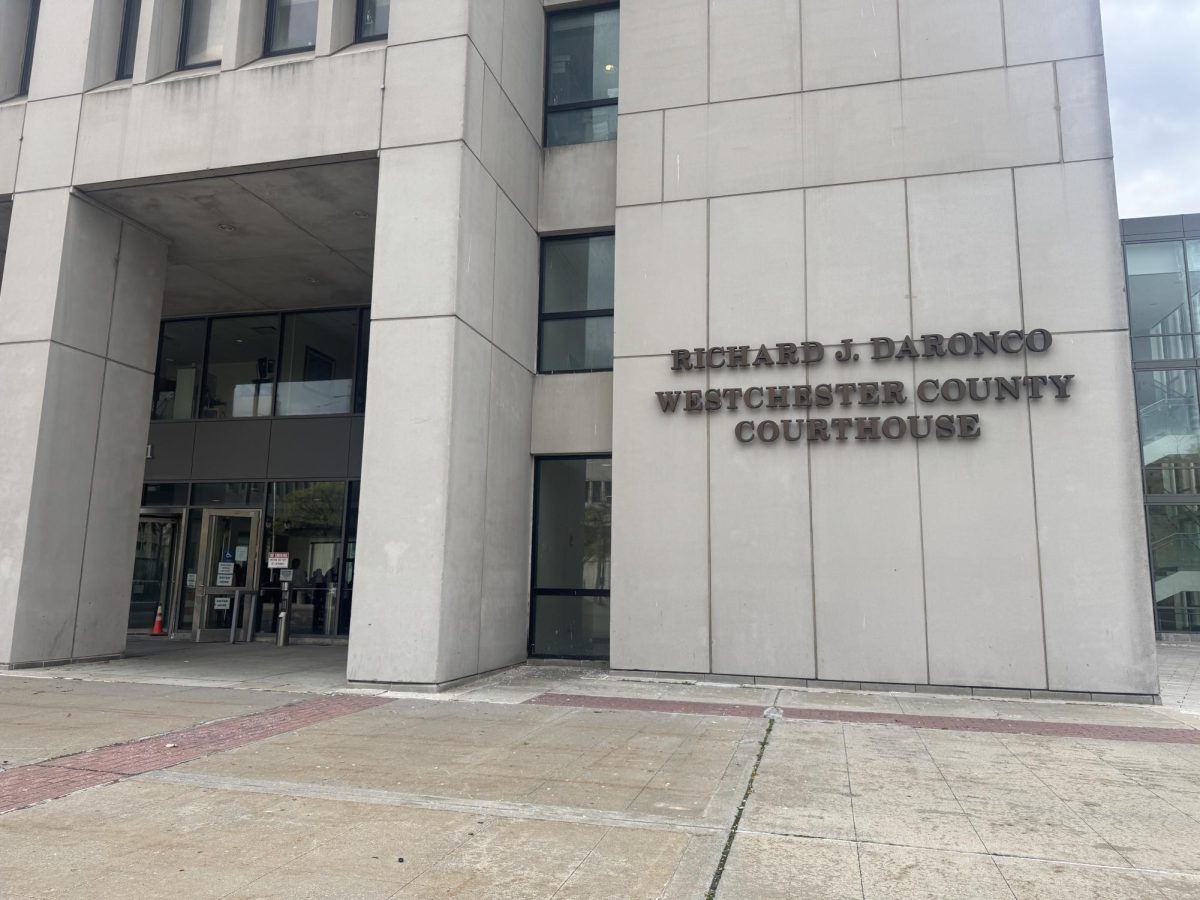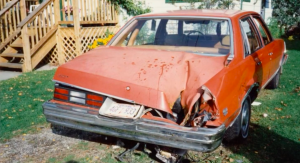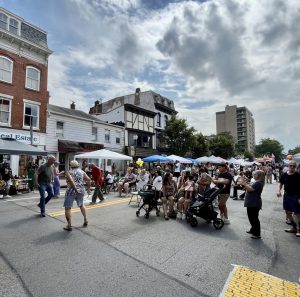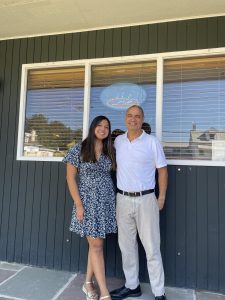Local Sanitation Company Gets Scrappy
On Peekskill’s border, food waste becomes ‘black gold’
September 16, 2021
Peekskill Brewery wanted a zero waste event when they hosted their Hop and Harvest Festival back in 2014. “Big events can become an environmental disaster if you don’t make a point of disposing waste properly,” said Keith Berardi of Peekskill Brewery. They called C.R.P. Sanitation of Cortlandt Manor and asked if they could pick up the food scraps from the Festival which some 4,500 people attended. Anthony Carbone, who worked in his family carting business said ‘yes’, but needed to locate a facility to take the 120 bags of compostable scraps. When he learned the closest food scrap recycling business was in Kingston, the idea for Sustainable Materials Management was born. Sustainable Management shares space with C.R.P. on Bayview Avenue off Roa Hook Road – just over the Peekskill border where Annsville Creek meets the Hudson River.
The seven-year odyssey Carbone undertook to create a nearly two-acre food scrap composting site on his company’s property celebrates its one year anniversary this month, just in time for a new law on the books in January. The NYS Food Donation and Food Scraps Recycling law requires businesses and institutions that generate an annual average of two tons or more of wasted food per week to donate excess edible food and recycle all remaining food scraps if they are within 25 miles of an organics recycler (composting facility, anaerobic digester, etc). Three years ago, in anticipation of the new Food Donation and Food Scraps law, state regulations were relaxed allowing composting businesses to have 5,000 cubic yards of composting compared to 1,000 cubic yards. That shift in regulation changed the equation for a business to make a profit in this field.
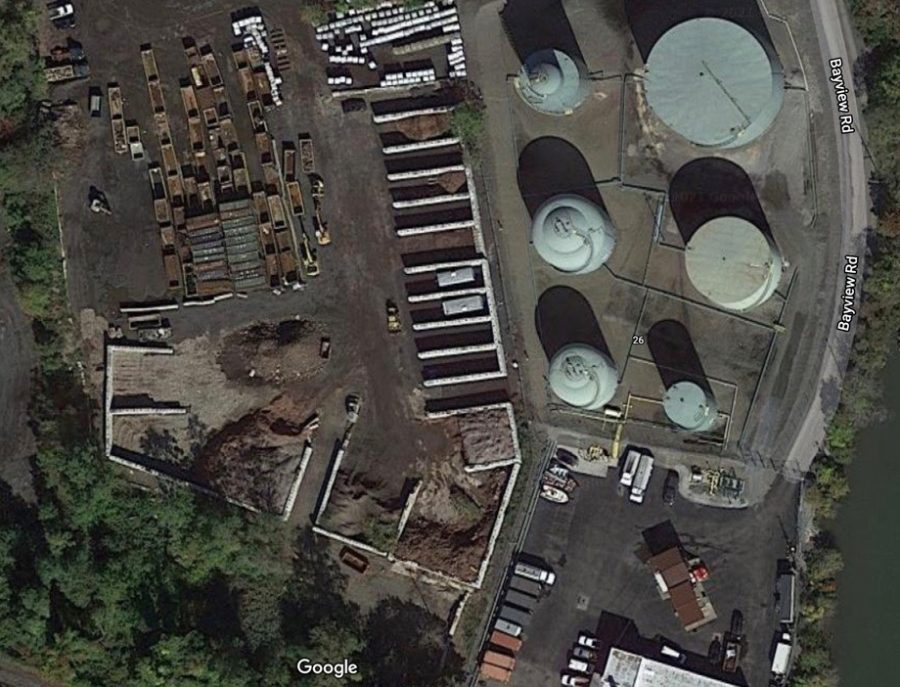
Food scraps and spent grain generated from the busy brewery are picked up by C.R.P. Sanitation three times a week and taken to Carbone’s facility where they are decomposing into nutrient rich compost that will bolster gardens and lawns. “What’s that saying,” ‘one man’s trash is another man’s treasure,’” asks Berardi? And in this case, he adds, it’s the perfect business model for Sustainable. “We pay to have them come and take away our spent grain that is turned into compost for their business, which they in turn sell to people.” Berardi is grateful that Sustainable is close by. He was initially giving his spent grain (from which he only extracts sugar and flavor) to a farm in Garrison and another one in Cortlandt – but was making too much for them to receive.
Carbone, 40, says he grew up in the garbage business.”When I was a newborn I was sleeping during the day and awake at night. My mother couldn’t get any sleep, so my dad, who had a night garbage route, took me with him. Carbone laughs as he describes the way he was placed in the front seat of the garbage truck with a pacifier hanging from a shoe lace over his head so it wouldn’t fall to the floor. Anthony is joined by his two brothers and two cousins in the family business started in 1979 by his father and his two uncles. Carbone graduated from Iona College with a degree in business management and spent the last seven years learning everything he could about composting food scraps. In addition to the sanitation company, they rent port-a-potties and storage containers. Before he started the food scrap composting business, they rented space out to local landscapers to store equipment; that area is where he located the bays that hold the mixtures.
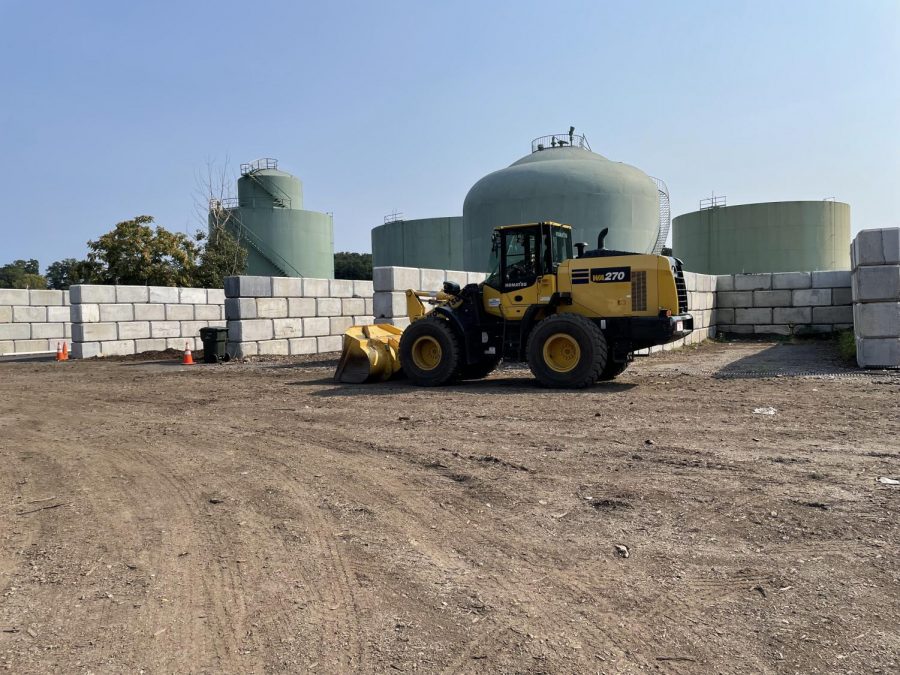
“We are making a product here that is not generating any waste,” Carbone proudly boasts. He is pretty much a one-person operation now but knows he will be adding labor when the January 1 law takes effect. From the time food scraps enter his property it takes 90 days until it’s turned into ‘black gold’ – in the form of one cubic foot bags of compost. He accepts food scraps from individuals who sign up at his website here. There is no cost to drop off the scraps.
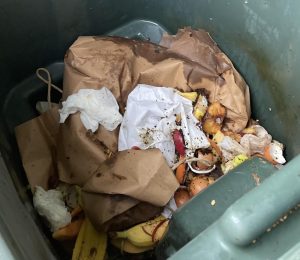
Once the food scraps are dropped off, they spend a month in one of the two bays mixed with ground up tree waste collected by the Town of Cortlandt. “Food is 90 percent water, so there are a lot of juices coming from this pile when the cellular walls are broken down, which is why we use the wood chips to soak up the juices.”
After the pile gets larger, Carbone drives a front end loader to move the mixture to another two bays where there are 4’ PVC pipes with holes that aerate the static pile. Once those bays are filled, he turns on an 1.5 hp air blower (similar to what is used to inflate bouncy play equipment for young children) for 5 minutes every half hour for a month to speed up the decomposing process. He uses a 3 foot and a 6 foot probe to monitor the temperature every day to make sure it’s between 150-170 degrees. The Department of Environmental Conservation requires the temperature be above 131 degrees for three days as part of a Process to Further Reduce Pathogens (PFRP). “It’s where everything is cooked and all the bad pathogens have been burned off,” said Carbone. “Bacteria comes to life to break everything down,” he says of this active composting phase.
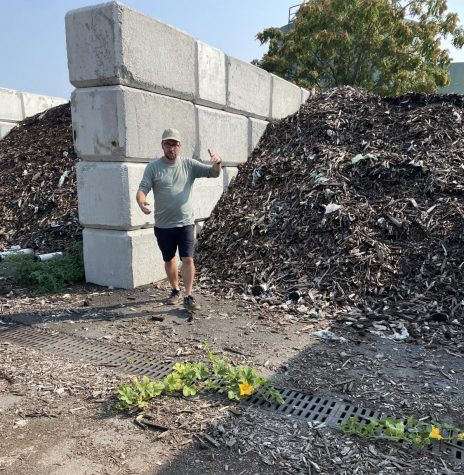
After this second 30-day period, the pile is moved to the ‘curing’ bays where there is no forced air and Carbone can see fungi such as mushrooms growing. This is the cooling down phase where the pile looks like a brownie, he explains. “The sun has bleached the wood chips at this point,” as the pile cools down for another 30 days.
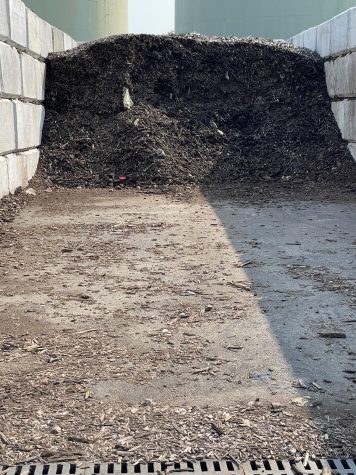
After going through the screener, the compost is then bagged and sold to customers. For an annual fee of $75 a customer can get up to 6 bags of compost. If someone wants to purchase a single bag, it’s $15 and they can bring the bag back for a refill at $10. Believing in his company’s guiding principle that “healthy soil is the building block for a healthy community,” Carbone sends his compost out to the Penn State Agriculture Lab for soil analysis, guaranteeing its organic content.
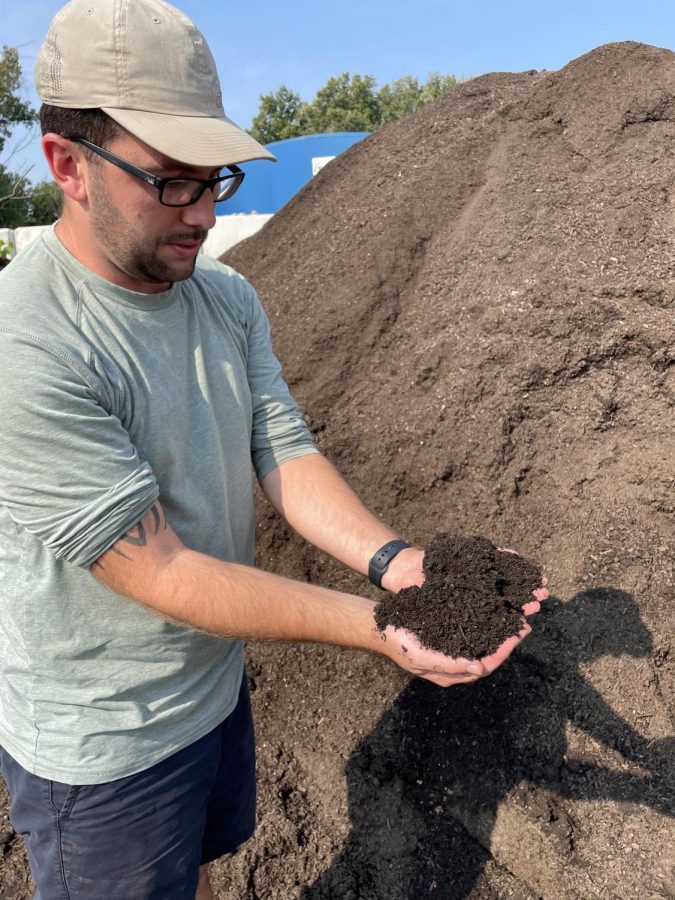
That’s the ‘official’ seal that his compost is good for the environment, but then there are the stories Carbone likes to share. A recent one is of a man in Katonah who got a 30-pound squash from his garden this year, thanks to Sustainable’s compost. And Berardi of the Peekskill Brewery said he’s always up for getting samples of what his composted grain yielded. Next spring Carbone will be putting his compost along half the company’s lawn to show how the grass will look with the help of his finished product.
